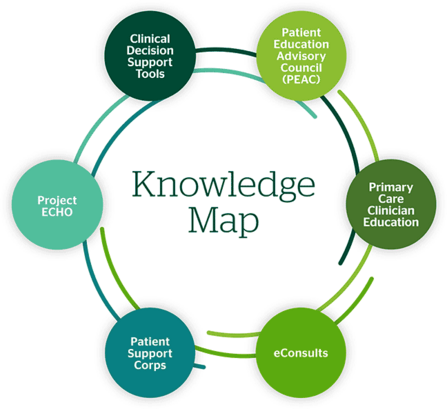Knowledge Map is a cluster of services focused on making knowledge accessible. We support Dartmouth Health with decision support tools and patient/community education through a health literacy lens.
Our services
- Clinical Decision Support Tools: Creating electronic medical record tools for standardized, evidence-based care
- eConsults: Providing improved access to specialty care experts
- Healthwise® patient education
- Patient Education Advisory Council (PEAC): Partnering to create accessible patient educational materials
- Patient Support Corps: Agenda setting and note-taking for doctor appointments
- Primary Care Clinician Education: Providing educational conferences, newsletters, and resources
- Project ECHO: Providing health-related education using virtual technology
Contact us
To contact us, please email knowledge.map@hitchcock.org.
For other inquiries, you may contact Barbara Dieckman, Director of Knowledge Map, at barbara.e.dieckman@hitchcock.org.
Population Health/Knowledge Map
46 Centerra Parkway, 2nd floor
Lebanon, New Hampshire, 03766
